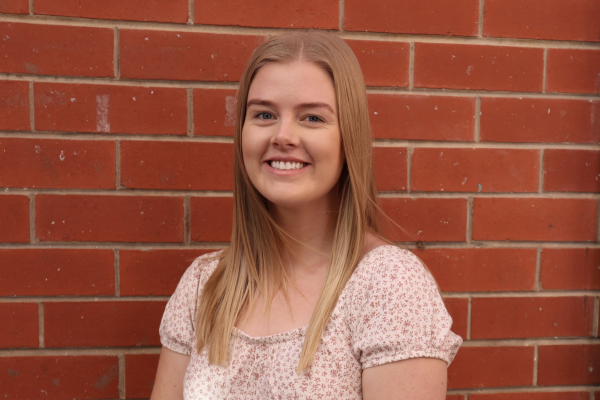Q&A with Dr Amelia Mardon

Dr Amelia Mardon was diagnosed with endometriosis aged 14. Now she’s hoping her work in pelvic pain research at NICM will help people like her teenage self better understand what’s happening in their bodies and vastly improve their quality of life.
Thanks to a recently awarded Early Career Researcher Fellowship from Western Sydney University, Dr Mardon and her team at NICM are set to co-design an online resource to teach young people about the science of pelvic pain and share evidence-based self-management strategies. This project will build on the successful Menstruation Matters website, developed and pilot tested with Associate Professor Mike Armour.
We sat down with Amelia to learn more about her work, her journey to becoming a pelvic pain researcher and the impact she hopes her work will have for the millions of people across Australia who struggle with endometriosis and other types of pelvic pain.
What inspired you to become a researcher?
I’ve always been interested in science and why things work the way they do. My undergraduate degree was in medical science, and I did my honours degree in cancer tissue biomarkers. It was during this time that I realised being a lab-based scientist wasn’t for me, and this was the catalyst for pivoting towards clinical research and working with human beings rather than their cells!
I’ve also always been interested in pain research, and pelvic pain in particular, from my own lived experience. It was overwhelming and isolating being a teenager and finding out you have a life-long condition with no cure, not to mention struggling with symptoms like debilitating pain and overwhelming fatigue. This was another big reason for why I have pursued a research career in pelvic pain and endometriosis.
What is the big health question or problem you are ultimately trying to answer through your research?
Pelvic pain affects approximately 1 in 5 women and people presumed female at birth. Despite this, we don’t have great health literacy about pelvic pain and how pain works. And that’s not just people with pelvic pain – that includes researchers, healthcare professionals, family members, friends and our wider society. Through my research I’m ultimately trying to uncover whether improving people’s knowledge about how pelvic pain works can improve clinical outcomes.
You were recently awarded an Early Career Researcher Fellowship under the Researcher Development Awards at Western Sydney University - what does receiving this Fellowship mean to you?
This Fellowship means a lot as an early career academic. It’s also my first grant as Chief Investigator, so it’s extra special!
These kinds of grants can have such an important impact on a researcher’s ability to be competitive for larger grants, which I’m ultimately hoping to receive one day. It’s also a privilege that Western considers the problem of pelvic pain to be an important area of research that they are willing to fund and support.
What do you hope the impact of your research will be for the millions of people in Australia who are impacted by pelvic pain?
My project is focused on improving the knowledge young people with pelvic pain have, because that’s often when this type of pain starts. I’m hoping that by focusing on younger generations that we can change people’s misconceptions about pelvic pain, reduce diagnostic delays, and ultimately get people the help they need earlier.
What’s one misconception people have about pelvic pain that you wish you could change?
I think one misconception that people have about pelvic pain is that all pelvic pain must mean someone has endometriosis. There has been a lot of discussion about endometriosis in the media and wider community, which is great and very much overdue! But while endometriosis is an important condition to raise awareness about, there are also a lot of other pelvic pain conditions that can get overlooked – especially those where no tissue pathology is involved, like vulvodynia or chronic pelvic pain syndrome.
We have data that shows the personal and economic burden of these conditions are similar to that of endometriosis, however they aren’t commonly the focus of research and participants have said they feel their experiences are often dismissed.
I hope through my research that we can improve peoples’ understanding on this and that any pelvic pain, no matter the cause or diagnosis, is valid and important to manage appropriately and effectively.
If you’re a young person (16-25 years) with pelvic pain and are potentially interested in being involved in research, please contact Amelia on m.mardon@westernsydney.edu.au
